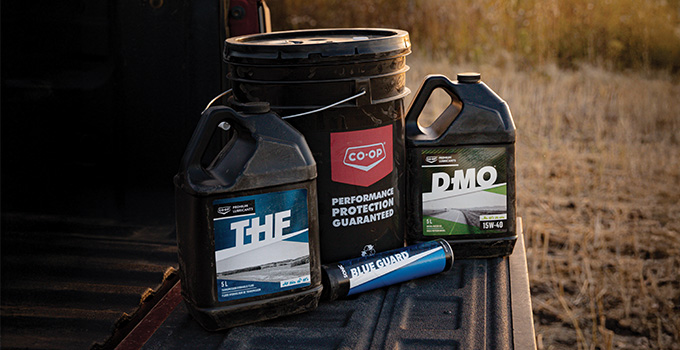The busy season is upon us, and it’s time to prepare your equipment. Nick Pawluk, Marketing Manager for Lubricant and Energy Products at Federated Co-operatives Limited (FCL), shares insights on how to avoid common lubrication pitfalls and get your equipment in top shape.

Common lubrication mistakes
Farming equipment relies on ongoing maintenance and the right products. According to Pawluk, these are the four most widespread problems in lubricant applications.
1. Incorrect product selection
“Using the incorrect product type for a specific application, like engines, equipment components or external devices, can lead to potential operating inefficiencies, higher fuel and oil consumption and quicker oil breakdown, which leads to increased maintenance costs,” said Pawluk.
Additionally, the wrong product typically provides less protection and therefore leads to more severe wear and damage, with complete failures in some extreme cases.
2. Improper application
According to Pawluk, several common mistakes are associated with lubricant application, starting with failing to consult the owner’s manual and OEM (Original Equipment Manufacturers) recommendations for correct service fill capacities.
“Using the wrong grade of product for the operating conditions — for example, summer versus winter conditions — is another big one,” said Pawluk. “This can result in poor startup, less protection and performance from the oil falling out of grade, greater chance of equipment breakdown and potential to diminish the overall life of the equipment.”
3. Ineffective storage and handling
Improper storage can contaminate lubricants, leading to poor performance. “If lubricants are stored in unclean or poorly controlled environments, contaminants like dirt, water or even mixed products can affect the oil’s effectiveness,” Pawluk emphasized. His advice is to always store lubricants in clean, temperature-controlled conditions and avoid transferring them into secondary containers.
4. Underestimated preventive maintenance
Establishing and following a preventative maintenance plan is key to ensuring the longevity of your equipment. “Accurate oil drain intervals are essential to keep machinery operating efficiently,” Pawluk said. “Follow your operator’s manual for the recommended intervals, whether they are weekly, monthly or based on hours of operation; document all oil and fluid changes, and monitor fluid levels regularly.”
Co-op Premium Lubricants
Co-op Premium Lubricants are high-quality products designed to maximize the efficiency and lifespan of your equipment. The use of synthetic lubricants, such as the D-MO® 10W-30 Synthetic Blend, ensures your machinery operates at peak performance, providing improved oil flow, reduced wear and longer service intervals.
Check with your local Co-op for more information on how to pair your lubricant needs with our versatile selection of products and services.

